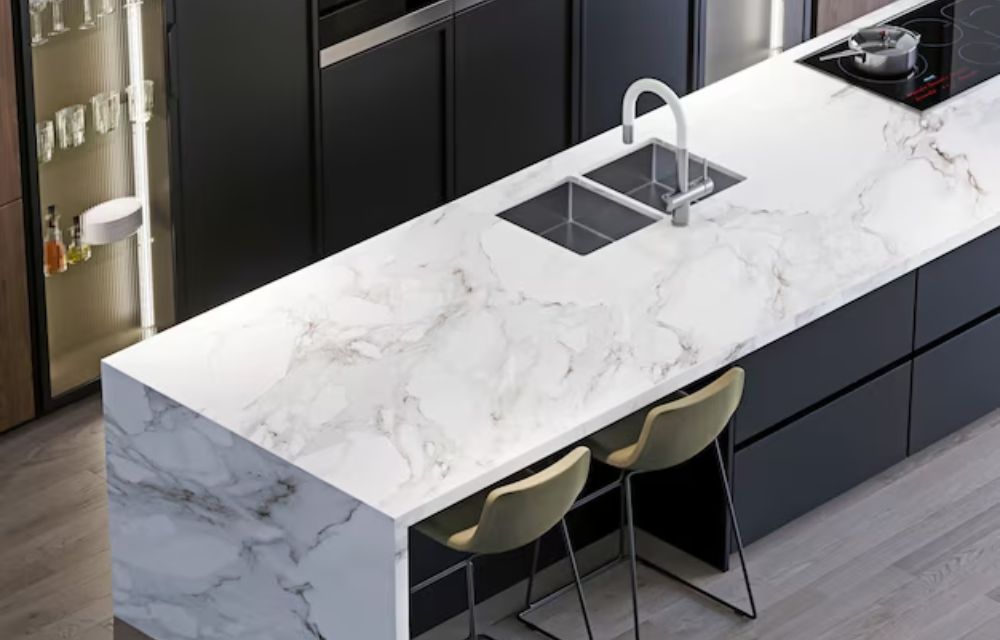How Engineered Stone Countertops Compare to Granite and Quartz – A Complete Guide
When it comes to selecting the perfect countertop material for your kitchen or bathroom, there are a variety of options to consider. Among the most popular choices are Engineered Stone Countertops, granite, and quartz. Each material offers unique benefits, and understanding how they compare can help you make an informed decision for your home.

What Are Engineered Stone Countertops?
Engineered Stone Countertops are manufactured using a combination of crushed natural stone, primarily quartz, and resin binders. The result is a non-porous, highly durable surface that mimics the appearance of natural stone while offering enhanced performance. These countertops are known for their uniformity, wide range of colors, and resistance to stains and scratches.
Granite Countertops: Timeless Beauty with Natural Variation
Granite is a 100% natural stone that is cut into slabs and polished for use in countertops. It’s prized for its natural patterns, colors, and durability. Each slab of granite is unique, which adds to its appeal for homeowners looking for a one-of-a-kind surface. However, granite requires periodic sealing to prevent staining and can be more prone to chips compared to Engineered Stone Countertops.
Quartz Countertops: The Close Cousin of Engineered Stone
Quartz countertops are technically a type of Engineered Stone Countertops, but they have become a distinct category due to their popularity. Like engineered stone, quartz countertops are made from a mix of natural quartz crystals and resin. They are non-porous, easy to maintain, and available in a wide variety of colors and patterns. Quartz surfaces offer the look of natural stone with fewer maintenance concerns.
Comparing Durability
In terms of durability, Engineered Stone Countertops and quartz both outperform granite in several areas. Engineered stone is less likely to crack or chip, thanks to its uniform composition and strength. It is also non-porous, which makes it resistant to staining and bacterial growth—something granite can’t offer without regular sealing.
Granite is extremely hard and heat-resistant, but it can absorb liquids if not properly sealed. Quartz and engineered stone have the advantage of being both stain-resistant and easier to clean, making them ideal for busy kitchens.
Aesthetic Choices
Granite’s natural beauty is hard to replicate. If you love organic, one-of-a-kind patterns, granite may be the right choice. However, Engineered Stone Countertops offer more consistency in color and pattern, making them suitable for homeowners who prefer a uniform look throughout their space.
Quartz also delivers a consistent appearance but often mimics the look of natural stone with impressive realism.
Maintenance and Care
Maintenance is one area where Engineered Stone Countertops shine. They require minimal care—just regular cleaning with mild soap and water. Granite, on the other hand, requires sealing at least once a year to maintain its stain resistance.
Conclusion:
If you’re considering Engineered Stone Countertops for your home, look no further than Al Rafahia Marbles & Granite LLC. They offer a wide range of premium materials, including granite, quartz, and engineered stone, paired with expert installation services. With a reputation for quality and craftsmanship, Al Rafahia Marbles & Granite LLC is your trusted partner for elegant and durable countertop solutions.




